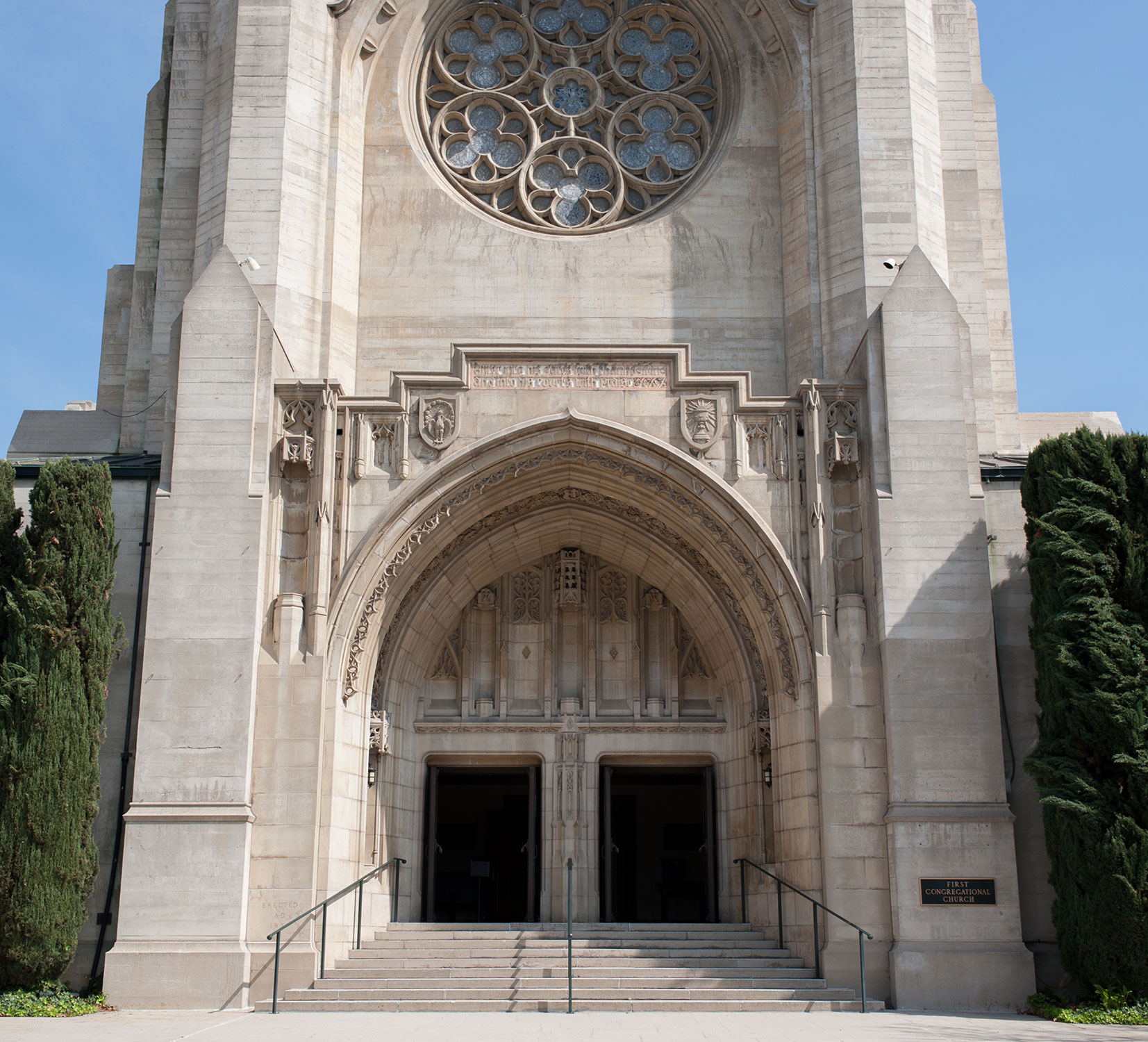
“I admire the Good Samaritan for picking up people on the side of the road, but I don’t want to be the Good Samaritan. I want to fix the road to Jericho.” - Martin Luther King, Jr.
Vice president of Advocacy and Policy at World Relief, an international relief and development non-profit. Author of two books, one of which is about the immigration debate, titled “Welcoming the Strangers”. Named one of Christianity Today’s “50 Women to Watch”.
At the young age of 33, Jenny Yang is making her mark as a world changer. However, as a first generation Korean American, she started off in a similar place as many first generation immigrants, outside of the immigration dialogue. Developing a heart for the issue has been a journey.
Yang’s own place in the immigration narrative began with the incredible story of her father. Yang’s father had a difficult childhood in Korea, where he was orphaned at a young age and grew up living with an unsupportive uncle. After high school, he became so good at fixing cars that he won first place in a national car-fixing competition — one of the judges even invited Yang’s father to come with him to the U.S. There, he started working at Ford Motor Company and eventually opened up his own business.
Yang recalls, “Growing up, we always had a huge pride in America, loving the country and being grateful for what the country had to offer.” In retrospect, she sees this personal history as people who oftentimes experience bad poverty and come to the U.S. to make a better life for themselves.
In college, Yang studied abroad in Spain, a country that saw the migration of many North Africans. There, Yang witnessed the treatment of these Spanish immigrants, finding the blatant racism eye-opening.
“One day, I was riding the subway. A group of Spanish teenagers got on the subway and there was a North African woman who was on the train with her young kid. These young Spaniards started graffiting on the walls, ‘GET OUT OF MY COUNTRY BARF PEOPLE!’ I went up to them, but they left before I had a chance to talk to them.”
That same fateful summer, Yang researched asylum law in Europe, which piqued her interest in refugees and asylum. “Immigration is an international phenomenon. We need to understand it in this context — that migration happens everywhere: in Asia, Latin America, Europe, etc.”
In 2006, Yang started working in Washington D.C. at a political fundraising firm, where she was first exposed to the controversial political views on immigration in America. “When you first encounter it, it doesn’t seem that interesting. I didn’t know why a lot of people were so upset.”
But the more she learned about the way the American immigration system works, the more it became clear that there were many things wrong with it. “The Christian community that I saw was the most uninformed, if not the most, vocally anti-immigrant. It became my passion to advocate on this issue.”
Who are the Undocumented Immigrants?
At World Relief, Yang received calls from pastors who were faced with new challenges as ethnically different immigrants began coming into their communities — pastors were realizing that they were picking up the pieces of broken families.
Undocumented immigrant parents from the congregation would call their pastors when they were picked up by law enforcement. For some minor traffic violation, they would be detained and could no longer pick up their kids from school. The parents would go from one detention center to another — sometimes they got picked up in Connecticut, only to be put in a detention center in Texas, and had to keep going back and forth.
A lot of times, these pastors picked up the immigrants’ kids and explained to them what happened to their mom or dad. Parents simply didn’t know what to tell their kids — they didn’t know whether they would ever be able to see them again.
There is often the myth that these people immigrate illegally because their parents did. A lot of undocumented immigrants are low-skill workers and have to meet a certain criteria, like a poverty threshold, to apply for a visa. Many come from areas of extreme poverty, and would never qualify for visas, which are extremely limited. Some would go to the U.S. embassy to find a way to come legally, but were unable to find any opportunities. So, 40-80% of undocumented immigrants come legally on a visa and then overstay their visa. The immigration issue is not just a border problem, but a visa problem as well.
There is a certain and unique shame associated with being here undocumented, particularly in the Asian community — often known to be more passive and to carry the expectations of being a model minority group. Undocumented immigration is a hidden challenge, largely because a lot of people do not want others to know they are undocumented. “How do you address this issue when the people themselves won’t tell their own stories?”
The effect of this is a community-wide cycle of shame and censorship: “There is strength in numbers to a certain degree.
A lot of undocumented people in the U.S. don’t want to talk about it. It doesn’t allow other people to talk about it as well, when I know for sure there are so many people who are here without documentation, who are living difficult lives and want to share their stories, but feel like they’re the only ones.”
Yang believes that breaking this vicious cycle of isolation starts with the church community. The church must become a place that welcomes individuals, where they feel like they can talk about their undocumented stories and the suffering it brings.
What Can the Church Do?
Before our identity as Americans comes our identity as followers of Christ. Many Christians may find themselves torn between the desire to show compassion and the desire to respect the authority God has placed above us by upholding the law.
In Matthew 25:35, the Son of Man gives his blessings, “For I was hungry and you gave me something to eat, I was thirsty and you gave me something to drink, I was a stranger and you invited me in” (NIV). As Christians, we are called to welcome the stranger. There is nothing illegal in terms of showing compassion on the individual level for those who are undocumented that live among us, whether that is someone who lives in our neighborhood or goes to our church.
However, as a nation founded on resistance against a government that violated biblical principles, we are also called to uphold justice, as captured in the spirit of Yang’s favorite saying by Martin Luther King, quoted in the epigraph. “We have an opportunity here to change our laws. Right now, our laws are not working for the common good, and we have an opportunity to change that. The rule of law is only as good as it functions. Our immigration laws can change again, coupling it with enforcement and rule of law.”
Right now, our laws are not working for the common good, and we have an opportunity to change that.
- Become a place of refuge, welcoming these immigrations in our midst. This begins with our language, in choosing not to use words such as “alien” and “illegal immigrant” to isolate and define this group of people by their actions.
- Become a center of legal assistance that can provide a wealth of information for people to come and receive. In this way, we can protect undocumented immigrants from being taken advantage of and receive legal status while being ministered to. For those who want to be involved through advocacy, they can contact members of Congress directly either by writing letters or calling independently, or through the World Relief website (worldrelief.org/advocate), which streamlines the process.
- Get involved in different organizations such as the Evangelical Immigration Table. This is a coalition of 10 different organizations that support similar immigration principles and talk about what evangelicals should support. Recently, they launched the “I Was a Stranger” Challenge (evangelicalimmigrationtable.com/iwasastranger/), in which 40 scripture passages that help us relate to immigrants are provided.
There is no better place than the church to open up its doors and welcome the strangers, for immigrants to feel like they finally have a place to belong, one that transcends physical location and culture.

Wonho Frank Lee is a freelance photographer who primarily shoots for Eater LA and recently received his MFA from Cal State LA. Follow him on Instagram @WonhoPhoto.

